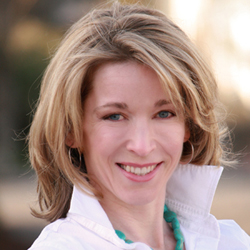Soul Matters – November 2015
It was a busy day at the graveyard. Abnormally busy. Raking leaves from my parents’ gravesite I noticed a number of people walking by. It took me a while to figure out that a burial service was taking place close by, a fact I finally deduced not by the attire of the passers-by—which was more suited to a trip to the mailbox than to mourning—but from the sheer number of persons. As the service commenced I stopped raking in respect and stood quietly as witness.
That’s when it happened.
A cell phone rang, and I watched in stunned disbelief as one of the mourners (and I use that term loosely) took the call. In an audible voice he engaged in a five minute conversation, graveside. I still have a bruise on my jaw where it dropped and hit the ground.
Now, is this normal? I’m sad to say, yes. But acceptable? Understandable? Not in my book. Full disclosure: I was raised by old-school parents born in the 1920s who taught us manners and to think of others before acting. But my dismay about this incident goes beyond personal affront and propriety; the loss of decorum and respect for others concerns me because it is an indicator of nothing less than the disintegration of society.
Civility is the glue that holds us all together. It re-minds us, which is to say, it puts us back in our right minds, into a proper perspective, lifting our besotted gaze above the screens on our iPhones and directing our consciousness to others and to the world around us. Defined as politeness, respect, consideration and good manners, civility serves to soften the rough edges of life with grace and thoughtfulness.
Civility suffers in a fast-moving, perpetually preoccupied and self-centered society. In fact, civility cannot exist alongside narcissism: the two are mutually exclusive. And ours is a painfully, often obscenely narcissistic culture. And unfortunately, self-centeredness and rudeness has a viral-like effect, particularly in an already fragmented society.
There is another, related element at play here, and that is the importance of ritual. Where civility reminds us of others, ritual reminds us of the ineffable. Ritual is the bridge between what is seen and what is not seen. It provides a framework that orients us in times of great transition: funerals, weddings, coming-of-age and graduations are all times when a person is leaving one epoch of life for another; ritual is what guides us through that process while simultaneously re-minding us of the profundity and sacredness of these passages.
Without ritual the extraordinary transformations of life become ordinary and unremarkable; so unremarkable that one can have a little chat about the price of broccoli in the middle of a funeral. Temporarily blinded both to those around us and to life’s ineffable nature, these threshold experiences lose their significance and potency; the soul starves for lack of meaningful connection and life loses its depth and meaning. Without civility and ritual, nothing is sacred, and when nothing is sacred anomie ensues: we become disconnected, self-absorbed, lonely and lost. And the more split off we become, the less anything matters. It’s a vicious circle.
Where civility reminds us of our proper relationship to others, ritual reminds us of our proper relationship to the cosmos. They are the bookends that bind us to our dual nature of humanity and divinity, reminding us that we are not an isolated center of an inanimate universe, but a bright light in its soulful vastness.
KATE INGRAM, M.A., is a therapist, soul coach and author whose mama raised her right. To learn more about creating a more soulful life, please go to katherineingram.com, or write Kate@katherineingram.com.
 KATE INGRAM, M.A., is a counselor, soul coach and author. Her first book, Washing the Bones: A Memoir of Love, Loss, and Transformation about her journey through grief and depression to spiritual awakening, was awarded a 2014 Nautilus Silver Medal and a 2014 Indie Book Award. To receive free monthly inspiration or to find out more about her work, please visit
KATE INGRAM, M.A., is a counselor, soul coach and author. Her first book, Washing the Bones: A Memoir of Love, Loss, and Transformation about her journey through grief and depression to spiritual awakening, was awarded a 2014 Nautilus Silver Medal and a 2014 Indie Book Award. To receive free monthly inspiration or to find out more about her work, please visit